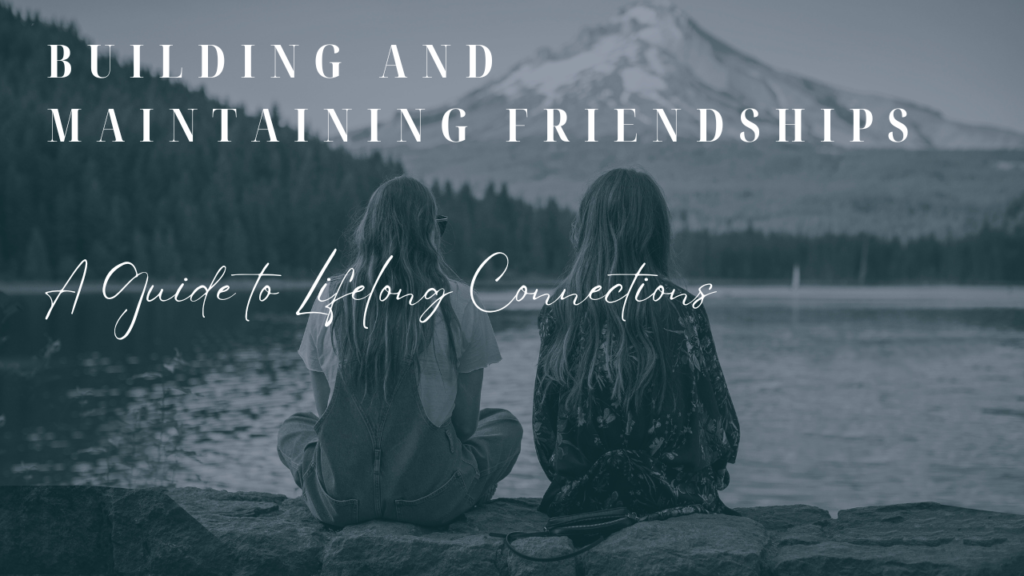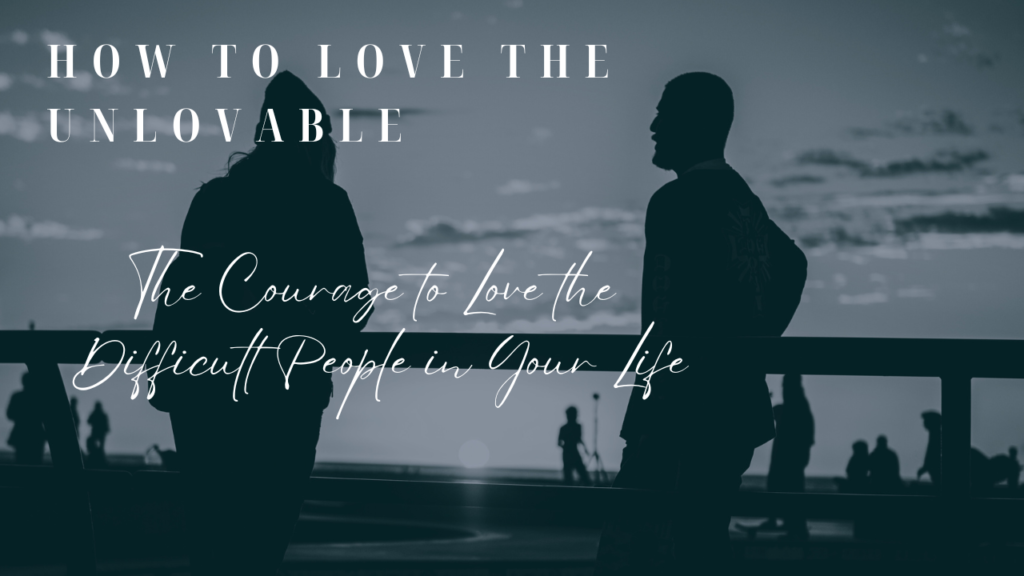Friendship sounds simple when you’re a kid. You sit next to someone at lunch, trade snacks, laugh about nothing, and boom—you’re best friends. No one’s overthinking it. No one’s wondering about emotional labor or boundaries or whether this person is safe for their nervous system.
Then you grow up.
And suddenly friendship gets harder. Way harder.
People are busy. You’re busy. Life pulls in every direction. And you start to realize that building and keeping real friendships is work. Not the exhausting kind of work that leaves you drained—but intentional effort that takes time, attention, and vulnerability. Stuff that’s easy to skip when the days are full and your energy is low.
But here’s the truth: you need people. Not followers. Not coworkers. Not people who say “Happy Birthday” once a year and like your posts. Actual friends. The kind you call when you’re not okay. The kind who show up without needing a reason. The kind who know your mess and don’t flinch.
And if you don’t have that right now, you’re not broken. But you might be lonely. And lonely isn’t something to normalize—it’s something to pay attention to.
Friendship doesn’t just happen. It’s built. And it has to be maintained.
So if you’ve ever felt like friendship is more fragile now than it used to be, you’re not imagining it. But it doesn’t have to stay that way.
Start With Presence, Not Performance
So many people think they have to be impressive to keep friends. Like if they’re not always funny or put together or emotionally strong, the people in their life will slowly back away.
That fear makes you show up in pieces. You hide the parts you think are “too much.” You keep it light, make the conversation about them, maybe throw in some self-deprecating humor to make yourself feel safe.
But real friendship can’t grow in performance mode.
If you want depth, you have to bring your whole self. Not just the “Instagram version.” The tired you. The insecure you. The angry you. The still-healing you.
That’s where real friendship begins. Not in impressing each other, but in knowing each other.
And look, not everyone can handle the real you. That’s okay. The ones who can? Those are your people. Don’t waste your energy trying to keep the rest.
Consistency Builds Trust
Friendship can’t survive on occasional catch-ups and “we should hang out sometime” texts that never lead to anything. It’s built through shared moments. Repeated connection. Time that isn’t always deep or dramatic—just there.
You don’t need to talk every day. But you do need to show up. Text first sometimes. Check in when it’s not convenient. Say “Hey, I’m thinking about you” even if you’re not sure what they’re going through.
It doesn’t take much. A quick voice memo. A random meme that made you think of them. An honest “I miss you. Let’s talk soon.”
People don’t need perfect—they just need present.
Show up when it matters. Show up when it doesn’t. That’s what makes someone feel safe.
Make Space for the Awkward Middle
Not every conversation will be meaningful. Not every hangout will feel magical. There will be dry spells. Moments where the rhythm is off, the connection feels distant, or the texts go unanswered.
Don’t assume that means the friendship is dead. Most relationships hit that middle space where it’s not new and exciting anymore, but it’s not broken either—it’s just normal.
Keep showing up anyway.
Say something when something feels off. Ask the weird question: “Are we good?” or “Is everything okay between us?” It’s scary, but silence is worse. Silence lets resentment grow. And most people aren’t mind-readers. They might be struggling too. They might need you to go first.
Friendship survives when two people are willing to talk about the tension instead of walking away from it.
Let People Change (and Change With Them)
You’re not the same person you were five years ago. Your friends aren’t either.
And that’s good. Growth is the whole point.
But sometimes we lock people into a version of themselves that they’ve already outgrown. We assume they’ll always like what they used to like, believe what they used to believe, show up how they always have.
But people evolve.
And real friendship makes room for that.
It means asking different questions. Paying attention. Being curious about who they’re becoming, not just who they were when you met.
Sometimes that growth brings you closer. Sometimes it reveals differences. Either way, it’s part of what keeps friendship alive. Stagnant friendships die fast. Growing ones get richer.
Let each other grow. It’s not a threat—it’s the whole reason friendship matters in the first place.
Be Honest About What You Need
Friendship isn’t one-size-fits-all.
Some people need more check-ins. Some need more space. Some need quality time. Others just need to know you haven’t forgotten them.
You can’t expect your friend to read your mind.
If you’re feeling distant—say so.
If you need support—ask for it.
If something hurt you—bring it up.
It’s not needy to express your needs. It’s mature. And it’s the only way friendships stay healthy over the long haul. Unspoken expectations are a breeding ground for disappointment.
You don’t need to demand things. Just be real. Vulnerability isn’t weakness—it’s the glue that keeps people close.
Learn When to Let Go Without Bitterness
Not all friendships last forever. Some are for a season. Some drift. Some get toxic. Some just… end.
That doesn’t make them worthless.
But it does mean you need to know when to release people instead of clinging to something that isn’t mutual anymore.
Letting go doesn’t mean there’s hate. It just means there’s distance. And sometimes that distance is needed for your growth—or theirs.
The key is to let go without bitterness.
You can grieve. You can feel sad. But don’t let your heart harden. The end of one friendship doesn’t mean you’re unlovable or unworthy. It just means the road you were on together reached a fork.
That happens. And it’s okay.
But don’t let that be the reason you stop trying.
Don’t let one loss close your heart to the gift of connection.
Because you need people. And the truth is—someone probably needs you too.


